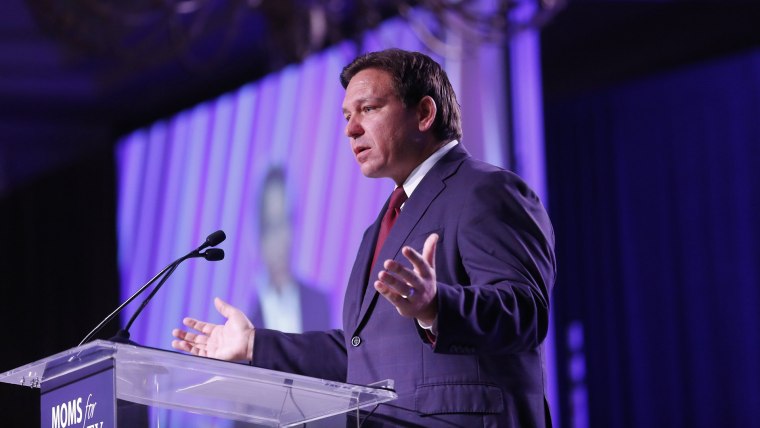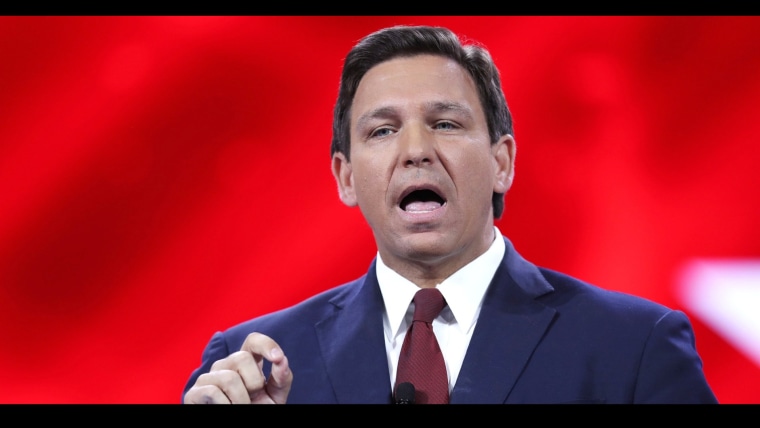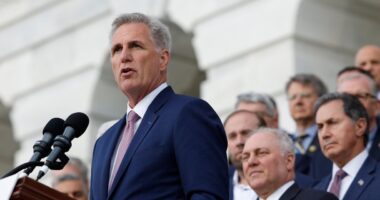Within higher education, Florida Gov. Ron DeSantis’ education reforms designed to combat what he considers “woke indoctrination” have rightfully generated a great deal of concern about the future of academic freedom in the state. This concern is shared nationally because of how entrenched the anti-critical race theory moral panic has become within social conservatism across the country.
But while the debate over “woke indoctrination” has been covered extensively, attention on the topic ignores a critical question: What happens if DeSantis — a 2024 Republican presidential favorite — accuses a historically Black college or university of woke indoctrination because he doesn’t like how it teaches Black history or ways of looking at society and the law?
The elephant in the lecture hall looming over DeSantis’ higher education initiatives can be summed up in four letters: HBCU.
If that happened, the damage would be significant. Indeed, the elephant in the lecture hall looming over DeSantis’ higher education initiatives can be summed up in four letters: HBCU.
Nationally, there are 101 HBCUs; 52 are public institutions, and 49 are private, nonprofit institutions. There are four HBCUs in Florida, including Florida Agricultural and Mechanical University (widely known as FAMU), in the state capital, Tallahassee. HBCUs have historically been and remain repositories of knowledge that was denied by the predominantly white colleges and universities that dominate academia. Their graduates include such crucial figures as Martin Luther King Jr., Pauli Murray, Thurgood Marshall and Vice President Kamala Harris.
As a curriculum theorist and a Black Southerner, I’ve been struck by how HBCUs have been missing from the national discussions about how race should be taught on college campuses. I suspect that part of the reason for this glaring omission is that when people not from the South think about “higher education,” they automatically think of predominantly white colleges and universities like the University of Florida. However, in the South, higher education is more diverse than many people outside the region give it credit for.
That’s the lens through which we should be looking at legislation like the law that went into effect in Florida last July, asking public universities to conduct surveys to measure “intellectual freedom and viewpoint diversity“ on campus to gauge “the extent to which competing ideas and perspectives are presented“ and how free students, faculty and staff members feel “to express their beliefs and viewpoints.”
Although the law was signed a year ago, it recently made headlines because of confusion over whether the surveys were mandatory or not and what they would be used for.
But whether the surveys are voluntary or not, their mere existence is problematic in the current political climate. Make no mistake about it: The “viewpoint diversity” battles roiling higher education are over whose knowledge is considered valid and who has the power to set curriculum. People outside of education often overlook the political relationship between knowledge and curriculum.
Merriam-Webster’s dictionary defines “knowledge” as “the fact or condition of knowing something with familiarity gained through experience or association.” Anyone and any community can produce knowledge. Curriculum is knowledge that has been elevated to required learning status by an authority, namely an academic discipline, a school or the state. This is where the current conflicts over what DeSantis describes as “woke indoctrination” lie. Like many social conservatives, he simply doesn’t like what Black knowledge in the humanities and social sciences says about America.
For example, in this time when the importance of adhering to constitutional originalism sits at the center of the Republican Party’s agenda, Black history asserts that many of the authors of the Constitution understood concepts like “bodily autonomy” from the perspective of enslavers who controlled the bodies, including the right to consent to pregnancy, of enslaved women. It’s an inconvenient truth for the party.
DeSantis’ desire to foster “viewpoint diversity” on college campuses is disingenuous because neither he nor others in the anti-CRT movement understand what viewpoint diversity or diversity of thought means. They couldn’t possibly when they’ve tried to strip away historical lessons that would give students much-needed context to understand the social, economic and political environment they are growing up in.
DeSantis’ desire to foster “viewpoint diversity” on college campuses is disingenuous because neither he nor others in the anti-CRT movement understand what viewpoint diversity or diversity of thought means.
And how does one define the range of diverse viewpoints, anyway? This isn’t an idle question, because, for any survey of this nature to be useful, it has to account for the multitude of reasons that students choose to attend specific universities rather than assume they all show up to engage in endless debate with their classmates.
Further complicating matters is that the coverage of people who don’t feel comfortable on campus sharing their opinions tends to omit the necessary follow-up question: “Beliefs and opinions about what?” There is a stark difference between a disagreement over tax or foreign policies and a disagreement over whether Black people are genetically less intelligent or transgender people should have full civil rights.
Some may say there is no way DeSantis would try to limit the discussion of Black experiences in, of all places, HBCUs. I say he hasn’t shown the public any indication that he wouldn’t.
If he does, most certainly, those who genuinely value academic freedom and “viewpoint diversity” would support the HBCUs, while those who value indoctrination as learning would support DeSantis.
Black Americans would rightfully see this as an attempt to suppress their history and knowledge in the very environment that exists to preserve that history and that knowledge. They would call it systemic racism, and they would be correct. Social conservatives may oscillate between accusing HBCUs of teaching “victimhood culture“ and condemning the very idea of HBCUs itself. They would look to DeSantis to show “strength” when dealing with institutions they perceive as promoting “race essentialism.”
By any academic sense, the survey data would be useless, but the point of it would likely be to justify the action he wants to take to improve his national political profile.
If DeSantis brought the anti-CRT moral panic to an HBCU campus, it could play well in the Republican presidential primaries in 2024. It’s the sort of political move that would make him the darling of the anti-woke movement. On the other hand, it could ultimately prove to be his undoing on the national stage, because he would have to explain it outside Florida in places like Georgia, Ohio, Pennsylvania and Texas — all potential 2024 swing states with HBCUs.
Perhaps he could recognize the elephant trumpeting in the lecture hall or the sound of the fabric of American race relations tearing and walk back his rhetoric. Still, it seems he can’t hear anything over the sound of the applause from his supporters and he can’t see past his own ambition.
Source: | This article originally belongs to Nbcnews.com











